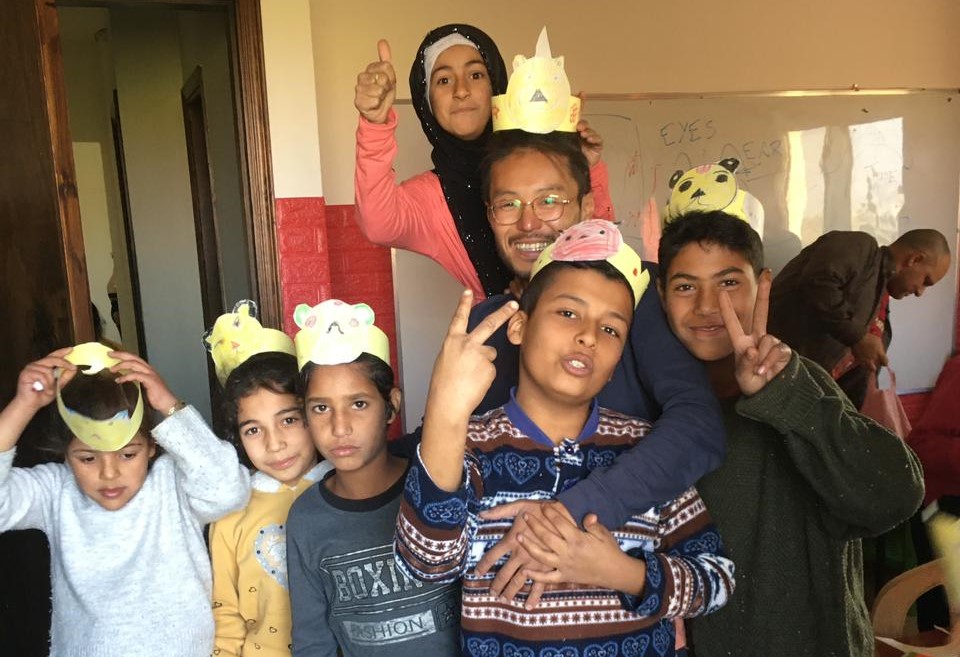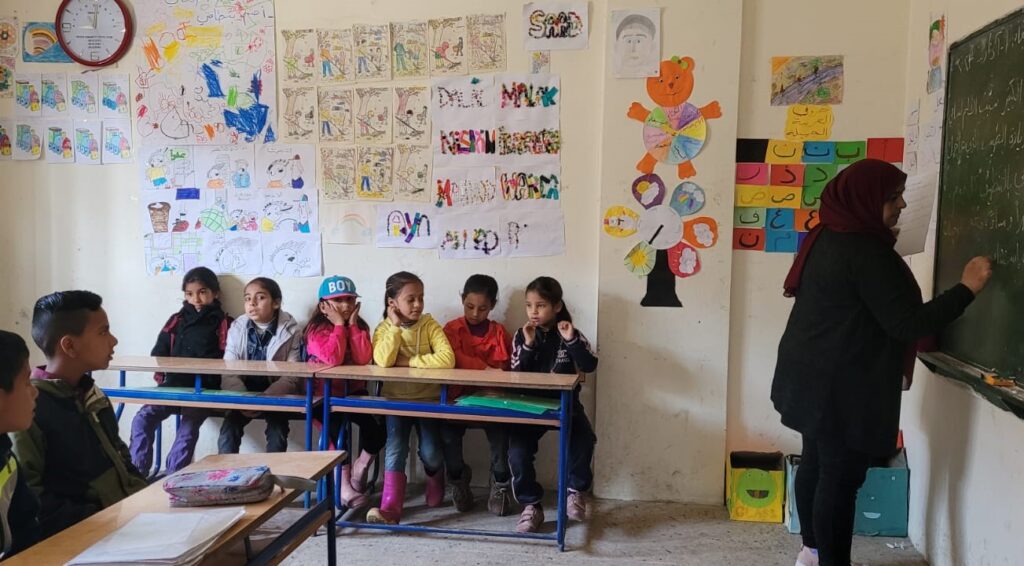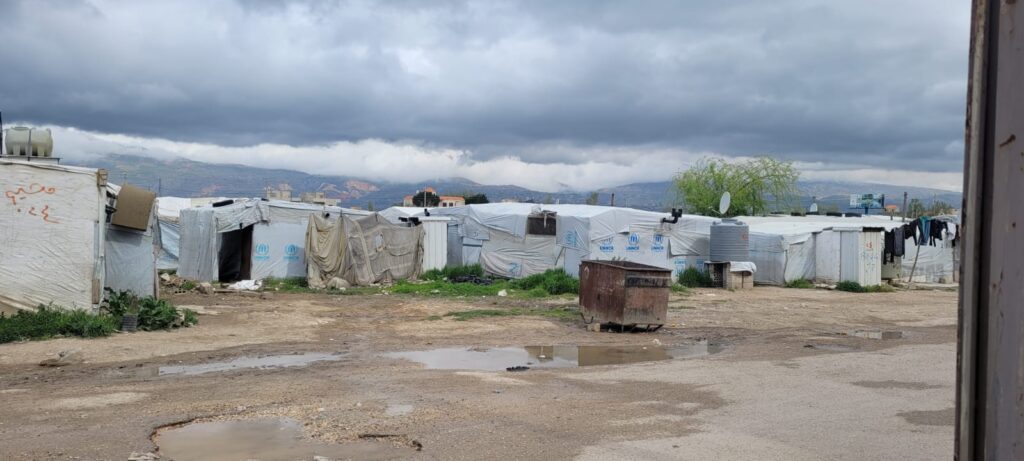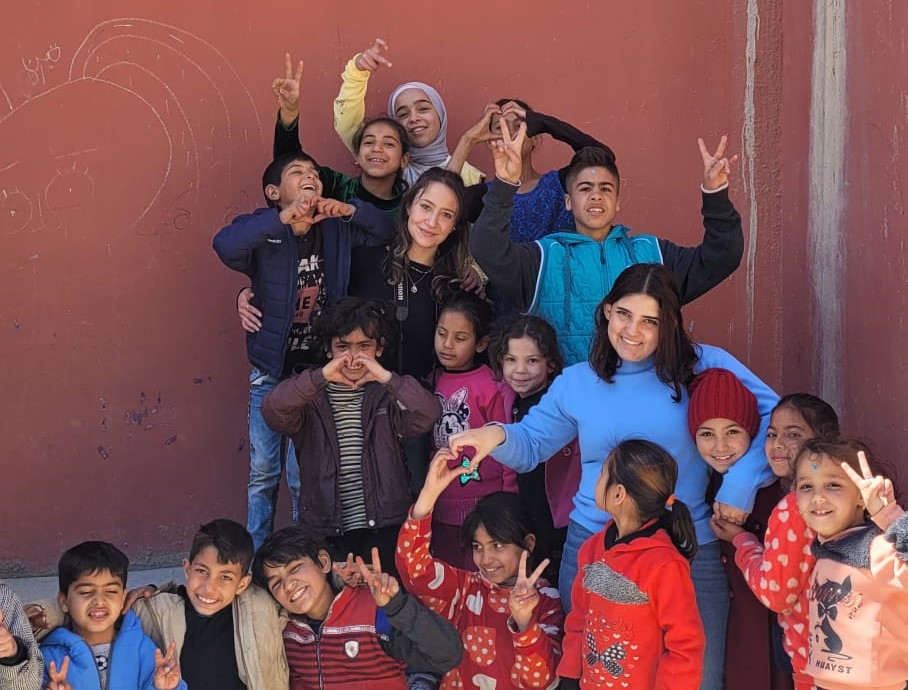Lebanon, a country of six million people, hosts around 1.5 million Syrian refugees, of which 90 per cent are estimated to live in extreme poverty. One of the many refugee camps in the country lies close to Bar Elias, a town located in the Bekaa Valley only a few kilometres away from the Syrian border. Here, the small non-governmental organisation (NGO) Greenhouse for All does its work by providing informal education to refugee children, many of whom have never been to school before.
In 2019, Yoshi, who is originally from Japan, came to the Bekaa Valley and founded the Greenhouse for All. He first started the NGO as an agricultural project to help refugees become more self-sufficient but he soon realised that a place for education was desperately needed for the many children in camps. Now, his goal is to provide education to refugee children and to help them create a better future.
I spoke to Yoshi, Amira, who is a teacher at the school, and Lili, who is one of the volunteers, about the situation in Bar Elias and their work with the children.
Disclaimer: Any opinions expressed in the following interview belong solely to the interviewee and do not represent the views and opinions of the author, the editorial staff of The Perspective, or UPF Lund.


Yoshi, your NGO started as an agricultural project, what made you start the school?
Yoshi: The children often gathered around us and we realised that they had nowhere to go, no school or anything. Especially during COVID, schools were online, but most families have only one smartphone, and they often have 7 or 8 kids. We started the agricultural project at the beginning of 2020 and then in the same year the school in May or June.
How is the school funded?
Lili: Yoshi spent all his savings to start the school and since then he got funding from different people that learn about the NGO.
Yoshi: Many of the volunteers who come from abroad go home and tell their families and friends about it and then they donate.
Amira herself is Syrian-Lebanese and worked for NGOs teaching refugee kids for many years before she joined the Greenhouse for All one year ago.


Amira, what do you teach the children?
Amira: Often, when you meet a kid who is maybe 14 years old, they don’t even know how to write their name. So when they come to our school we start by teaching them the basics of Arabic and maths.
Lili: Most kids don’t need the curriculum that we learn in other countries. We teach them more practical things, for example about the harvest season or how to fix things, something they can actually make money from.
Amira: Sometimes I feel sorry for them because they have big dreams. They say I want to be a doctor, a lawyer, an engineer, and they have big big big dreams but I don’t know if there is a chance, I don’t know…
Amira tells me that none of the students have made it into the public education system yet. Not only because of the education gaps but also because many children do not have identification documents which are often needed to attend formal schools. Amira and Lili tell me that it is often challenging to work with children who live through poverty and trauma.
Amira: Sometimes the children cry and we let them talk about their feelings and then we focus more on emotions than actual teaching. In NGOs, the rules are normally to not be too close to the children, but our children need it. They need hugs and to feel safe and cared for.
Lili: It is hard, the kids get attached to the volunteers and then they leave them again. Unfortunately, they are used to everyone leaving them. Their families move or some have to go live with their grandparents. So them knowing that Amira is not gonna leave, I mean she lives like two blocks away from the school, is so valuable.
Amira (laughs): Yes, that’s true. I try to teach them to see the positive side of this. I tell them, now you know the name of so many places and cultures around the world. But of course, it is hard.


Since the start of the economic crisis in Lebanon in 2019, hyperinflation, political instability and rising living costs have pushed millions of people into poverty. Public services collapsed leaving a whole generation without education. In January, the Lebanese Ministry of Education decided to suspend the afternoon classes for Syrian refugee children in public schools. Education International estimates that around 350 000 Lebanese and 170 000 Syrian children have no access to education.
Amira: In Lebanon, we have a generation without education. With COVID schools closed and now teachers are on strike. The situation is basically the same for many Lebanese and Syrians.
Yoshi: Since 2011, because of the Civil War in Syria, many kids don’t get any education so it’s really a lost generation. And now in Lebanon, it’s the same. We want to have some hope, but this lack of education will be harmful in the future, to them individually but also to society.
Due to the humanitarian crisis in Ukraine, the United Nations Refugee Agency (UNHCR) made cuts to their budget for the refugees in Lebanon. Before, the refugee families in Bar Elias received 40 dollars per month. Now the whole family has to live on about 30 dollars per month. As a consequence, many children have to give up school to work and support their families.
Amira: Now we have Ramadan, if they want to cook Iftar they pay 1 million Lira for one day. So it’s so hard to survive here.
Lili: There was a kid who was in Amira’s class and now we see him working in the local shop.
Amira: He is ten years old and works from eight in the morning to eleven at night for around one and a half dollars per week. I had children in my class who were so smart but they stopped coming because they now work.


What are your dreams and hopes for the future of the school and the children?
Yoshi: We want to create a leisure centre. Those who have a job from 10 years old, or have to take care of younger siblings, if they have some time they can come here and if they want to study we can prepare materials and we have teachers that can help them.
Amira: I dream that we can bring the Syrians and Lebanese together and that they accept each other. And for the children, I just hope that they have a better future than their parents. For that, we need to teach our children now and educate more children so they can create a future.
There are still thousands of hundreds of Syrian refugee children in Lebanon without access to education who will likely face the same future as their parents. In these desperate times, NGOs like Greenhouse for All are often the only source of hope for these children to receive basic education and build a better and self-determined future.
If you want to learn more about the Greenhouse for All and how to support them follow them on Instagram: greenhouseforall
By Johanna Fredrich








